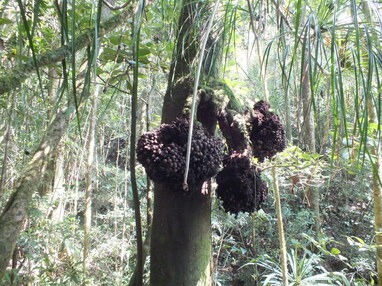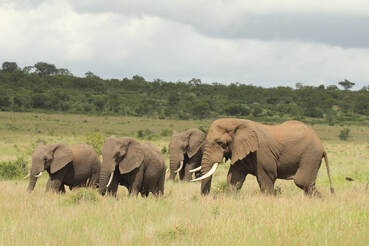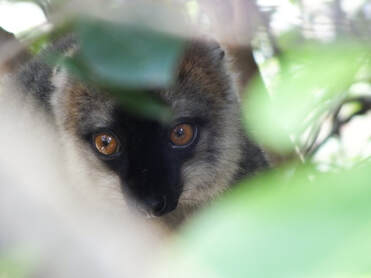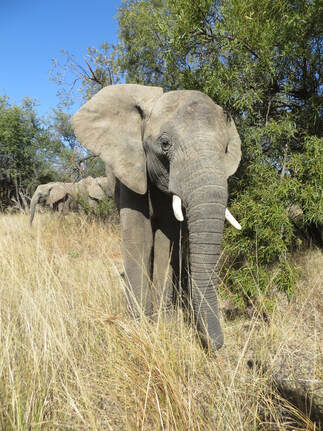Research projects
|
|
Animal sensory ecology
In this line of projects, I attempt to understand how frugivorous animals respond to fruit signals and cues, primarily to understand what selection pressures they have exerted on plants. In other words, to understand the evolution of fruit traits, we need to understand the behavior of the animals that feed on those fruit. I work with a diversity of animals - from Neotropical primates to African Elephants, in the wild and in captivity. Work I previously published with various collaborators has demonstrated the ability of spider monkeys to distinguish between the chemical profiles of ripe and unripe fruits even when the signals are artificially noisy, that wild lemurs increase their reliance on their sense of smell when feeding on fruit species that provide a particularly informative signal, and that semi-tamed elephants are capable of estimating fruit sugar content based on scent alone. In collaboration with Prof. Amanda Melin (University of Calgary) and others, we showed that intra-specific variation in color vision capacity is a major driver of fruit-selection strategies in capuchin monkeys. Current work focuses on comparative physiology of lemur species to understand how fruit chemistry has driven the evolution of animal olfaction. Funding: German Science Foundation (DFG), HE1870/19-1; NE21561/1; NE2156/2-1; NE2156/3-1 |
|
Utilizing chemical ecology to promote elephant conservation
Human-elephant conflict is a growing problem across Africa and south-east Asia. The most acute problem is crop raiding by elephants, which destroy the livelihood of subsistence farmers, but can also destroy commercial farms. In both cases, the result affects food security in developing countries, as well as economic development. In this project, my colleagues and I study the chemical ecology of African elephants to identify chemical compounds that naturally deter them. Our goal is to produce cheap and safe mixtures of chemicals that mimic natural deterrents which can be applied as "invisible barriers" to prevent crop raiding, thus promoting elephant conservation and empowering local communities. In collaboration with Dr. Melissa H. Schmitt and Dr. Kim Valenta |





